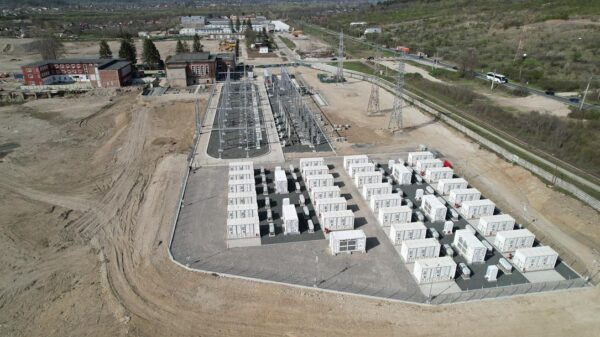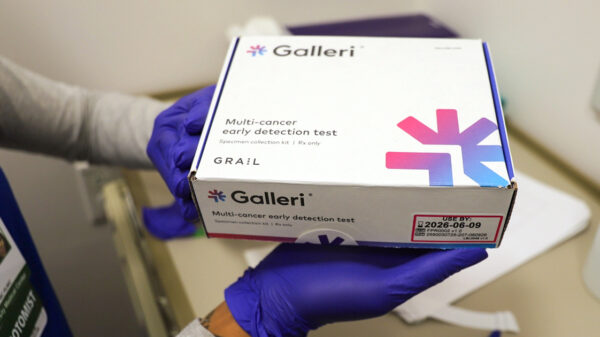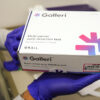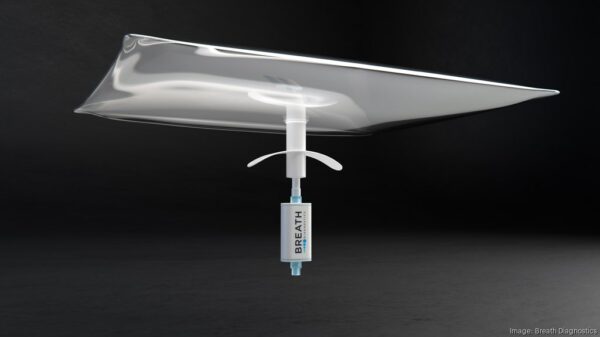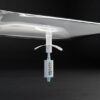Healthcare professionals in Canada will soon be able to devote more time to time with patients rather than on ceaseless paperwork and other administration duties due to a deal with tech-giant, Oracle (NYSE: ORCL).
The result, rolled out on Wednesday, is due to Oracle Health Clinical AI Agent, which is an artificial intelligence powered multimodal voice and screen driven assistant. Organizations using it in the United States have enjoyed an average 30 per cent reduction in documentation time.
Oracle AI Agent supports over 40 medical specialties. These include urgent care, sports medicine, nephrology, and pulmonology. It also assists providers in urology, gastroenterology, hepatology, and cardiology. Additionally, it offers expertise in otolaryngology, internal medicine, and behavioural health. Providers use the AI agent to streamline care and improve clinical efficiency across diverse disciplines.
“Time is our most precious, non-renewable resource. Oracle Health Clinical AI Agent helps to restore the clinician-patient relationship, emphasize focused time with patients, and reduce clinician burnout,” said Erin O’Halloran, vice president and Canada market leader, Oracle Health.
“The availability of this solution marks another step toward modernizing the country’s health information systems and providing a more digitally connected healthcare ecosystem.”
The platform combines generative AI, agentic technology, automation, multimodal voice, and screen-driven assistance into one solution. It also simplifies workflows, helping providers work more efficiently. Integrated with the Oracle Health Foundation electronic health record, the agent generates accurate draft notes within minutes. Providers can review and approve suggested next steps directly at the point of care.
Read more: Scientists develop breath-related diagnostic tool for early detection for silicosis
Read more: Korean consortium propels lung cancer drug development with AI, supercomputers
Artificial intelligence brings major benefits to healthcare
To date, clinicians have created nearly a million notes using the AI agent. Furthermore, the solution eliminates the need to navigate drop-down menus or search through multiple screens. Providers can also access key parts of a patient’s medical history before, during, and after appointments. Additionally, they can do so simply by asking the AI.
Oracle is bringing AI-driven intelligence across its full clinical portfolio, said Seema Verma, executive vice president and general manager of Oracle Health and Life Sciences.
By placing AI agents directly into clinical workflows, the company is reducing routine administrative tasks that once drained the joy from practicing medicine. Further, this approach helps clinicians focus more on patient care and meaningful connection. It also improves their ability to serve patients effectively.
“We received unanimously positive feedback from the thousands of clinicians who have used the solution and are proud to be extending these capabilities to our customers across Canada,” said Verma.
Artificial intelligence can bring major organizational benefits to the healthcare system.
It helps streamline administrative tasks, reduce documentation errors, and improve workflow efficiency. AI can also organize patient data, making it easier for clinicians to access critical information when they need it most. Therefore, providers can spend less time on paperwork and more time delivering care.
Oracle’s platform builds on these advantages. By embedding AI into clinical workflows, it eliminates time-consuming tasks like navigating menus or searching records. The agent provides accurate draft notes and suggests next steps within minutes. It also allows providers to retrieve key patient history by simply asking.
Read more: Breath Diagnostics gives the public the chance to join the fight against cancer
Read more: Breath Diagnostics now offering a compelling investment opportunity
AI offers personalized medicine
Artificial intelligence also offers significant benefits in healthcare beyond organizational support.
One of its most impactful applications is in diagnosis. AI can analyze complex data sets faster than traditional methods, helping clinicians identify patterns and detect diseases earlier. This is especially valuable in areas like radiology, pathology, and genomics, where high volumes of data can delay decision-making. Additionally, AI reduces the risk of human error by offering a second layer of analysis, increasing diagnostic accuracy.
Breath Diagnostics exemplifies this potential with its OneBreath technology. The company uses a microreactor that leverages AI and machine learning to analyze breath samples. This system can help detect multiple diseases through a non-invasive method. Early-stage lung cancer is its primary focus, but the technology holds promise for broader diagnostic use.
Further, AI supports personalized medicine by tailoring treatments based on individual patient data and risk profiles. It also improves clinical trial matching, ensuring patients receive therapies that best suit their conditions. AI can even forecast disease progression, allowing proactive interventions before conditions worsen. Overall, integrating AI into diagnostic processes improves speed, accuracy, and patient outcomes—while also reducing the burden on overstretched healthcare professionals.
.







